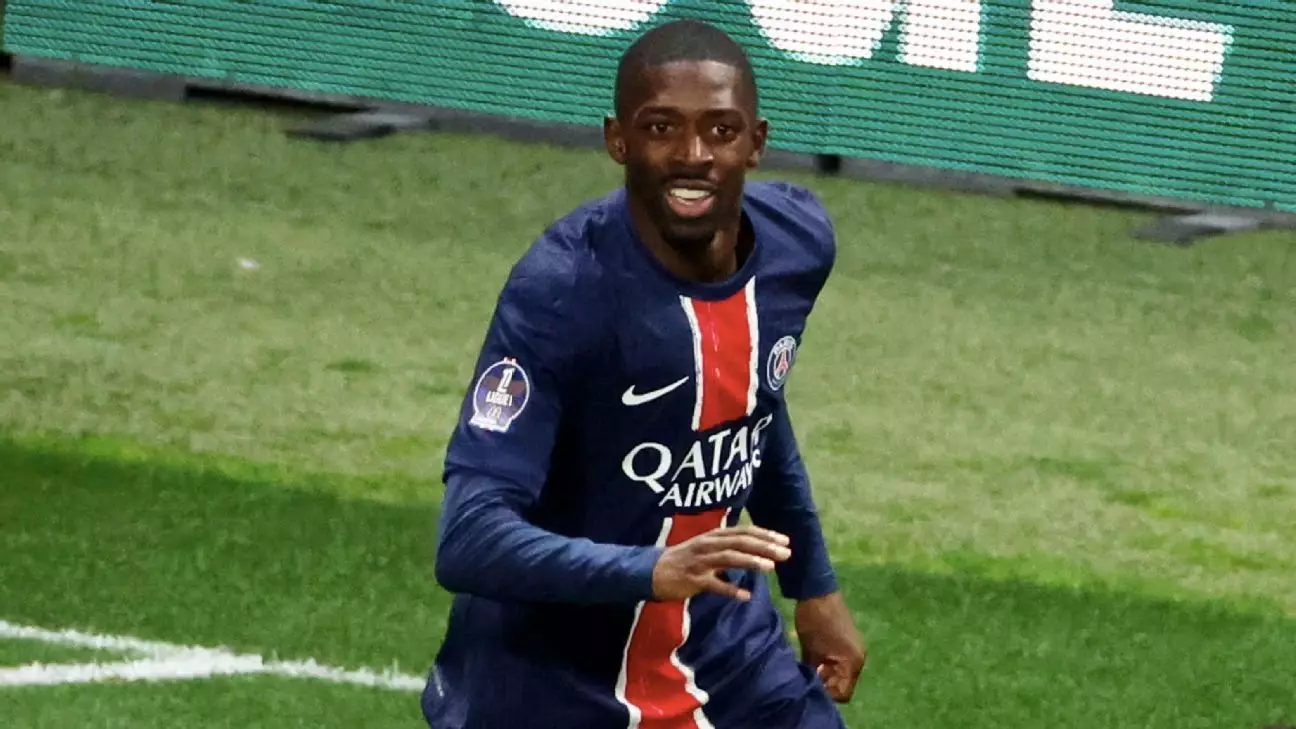Paris Saint-Germain (PSG) has found itself navigating through a period of adjustment following Kylian Mbappé’s high-profile departure to Real Madrid. Amid this transition, Ousmane Dembélé’s recent performance has drawn attention as potentially making him the next cornerstone of the team. However, coach Luis Enrique has approached this situation with careful consideration. By acknowledging Dembélé’s capabilities while simultaneously avoiding the label of “top scorer,” Enrique seeks to steer clear of placing undue pressure on the player, which could ultimately hinder team performance.
Enrique’s philosophy emphasizes that success should not rest on the shoulders of a single player, regardless of their talent. After Dembélé’s second-half goal in a 1-1 draw against Reims, the importance of a collective effort became even more pronounced. The accolades bestowed upon Dembélé, who has amassed four goals and two assists this season, illustrate the need for a balanced approach. Enrique’s assertion, “I don’t care who scores, as long as someone in a PSG shirt does,” underscores a strategic vision where collaborative effort supersedes individual exploits. This ethos is crucial, especially when the team is contending with injuries to key players like Marco Asensio and Gianluigi Donnarumma.
PSG’s recent encounter in Reims highlighted the various challenges the team faces as they strive to maintain momentum in Ligue 1. The match served as a reminder of the uphill battle that awaits them—Reims proved to be formidable adversaries, showcasing physical strength and technical skill. Enrique’s acknowledgment of the difficulty of this fixture reflects the keen awareness he possesses regarding the unpredictability of football. Moreover, the experiences gained from competing in high-stakes matches, such as their narrow victory over Girona in the Champions League, will influence their tactical adaptations moving forward.
With upcoming matches against Stade Rennais and Arsenal, Enrique’s tactical flexibility will come into play. His emphasis on adaptability is noteworthy as it showcases his confidence in the squad’s depth and versatility. This not only allows for substitutions based on the dynamic of each match but also builds resilience within the team structure. Such a strategy of rotation and positional changes could become a defining characteristic of PSG, particularly in an environment where injuries and fatigue can compromise performance. Enrique’s belief that his squad has what it takes to adjust accordingly is indicative of a coach who values strategic adaptability as a pathway to success.
PSG finds itself at a crucial juncture where the importance of a unified team vision cannot be overstated. As Dembélé continues to evolve within his role, he does so in a milieu that champions collective contribution over individual accolades. Luis Enrique has charted a course that prioritizes team success while cultivating an environment where each player’s contributions are celebrated without elevating them to unrealistic expectations. With challenges lie ahead, the true test will be whether PSG can harness their collective potential and emerge as a cohesive unit capable of overcoming adversities in pursuit of success in both domestic and European competitions.

